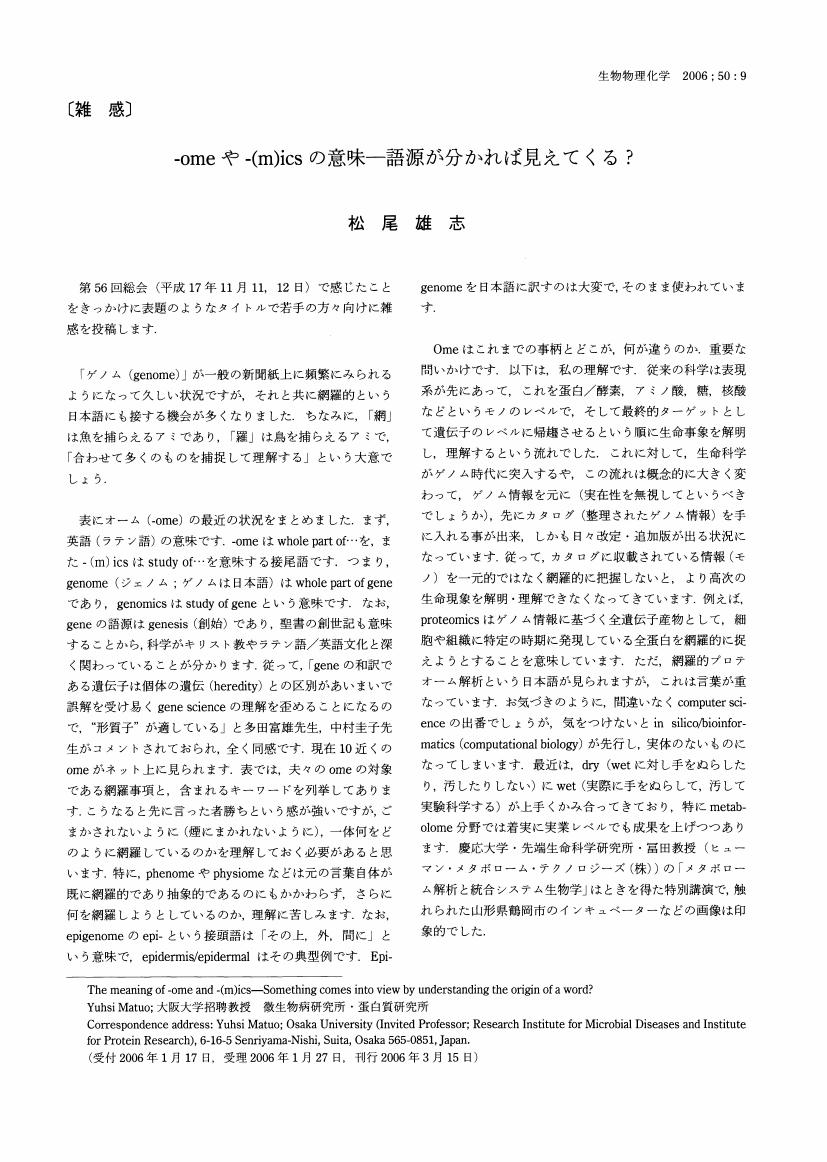- 著者
- 辻 威彦 籠谷 和弘 梅本 善明 松尾 雄志
- 出版者
- 日本食品化学学会
- 雑誌
- 日本食品化学学会誌 (ISSN:13412094)
- 巻号頁・発行日
- vol.27, no.2, pp.60-66, 2020 (Released:2020-08-31)
- 参考文献数
- 18
Ginger (Zingiber officinale) rhizomes have been reported to exhibit multiple efficacies on human health. In this paper, we found that n-hexane extract from ginger rhizomes (ginger oil) exhibited the inhibiting abilities against monoamine oxidase A (MAO-A) and B (MAO-B), which catalyze the oxidative deamination of monoamine neurotransmitters, by using an in vitro luminescencebased method. To characterize the compounds responsible for the inhibiting abilities against MAO-A and MAO-B, all fractions from reversed-phase chromatographies were subjected to the luminescence assay. As a result, we isolated five compounds from ginger oil by nuclear magnetic resonance (NMR) spectroscopy and mass spectrometry. The half-maximal inhibitory concentration (IC50) measurement using purified compounds revealed that (ⅰ) 6-, 8-, and 10-gingerols had strong inhibiting ability against MAO-A, whereas they showed weak inhibiting ability against MAO-B. (ⅱ) IC50 values of 6-, 8-, and 10-gingerols against MAO-A were calculated to be 175.7±11.0 μM, 54.6±2.0 μM, and 113.4±4.7 μM, respectively. (ⅲ) Furthermore, we revealed that 1-dehydro- [6]-gingerdione (compound 1) and diacetoxy-[6]-gingerdiol (compound 2) were contained in the ginger oil. (ⅳ) The compound 1 showed strong and selective inhibiting ability against MAO-B with IC50 of 6.77±0.45 μM, which was 10 times stronger than that against MAO-A. (ⅴ) The compound 2 showed weak inhibiting ability against both MAO-A and MAO-B. These findings suggest that the compound 1 having strong inhibiting ability against MAO-B could lead to the development of functional food materials intended to improve brain function.
1 0 0 0 OA -ome や -(m)ics の意味
- 著者
- 松尾 雄志
- 出版者
- Japanese Electrophoresis Society
- 雑誌
- 生物物理化学 (ISSN:00319082)
- 巻号頁・発行日
- vol.50, no.1, pp.9-11, 2006-03-15 (Released:2009-03-31)
